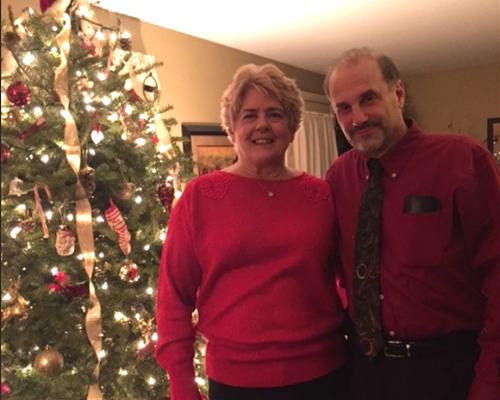
VLA Medicare Stories
Pamela: “I’m barely making it, but I make too much to get help.”
Pam and her late husband, Frank, thought they were doing everything right. They worked and saved for retirement, but then Frank was diagnosed with dementia and Pam had to leave the workforce early to take care of him. “I left a couple of years before I really wanted to retire,” Pam explained.
Frank’s illness meant that he eventually needed a nursing home level of care and so they spent down much of their savings. Pam described their expenses at the time:
“…we were paying, between the two of us, well over $400 a month for supplemental plans, plus what they took out for Medicare. And then we still had to keep him on Medicare when he went on [Long-Term Care] Medicaid and that took all his Social Security to pay for the nursing home.”
As the surviving spouse, Pam reflected: “I don’t have any of his income anymore so I’m really struggling to pay the… $170 bucks a month from my Social Security.” She is referring to the Medicare Part B premium which will be $174.70/month in 2024. Vermont’s Medicare Savings Program pays the Part B premium for some people, but Pam makes too much to qualify. Instead, she pays for private medigap insurance, as well as a prescription drug plan and a dental plan. The premiums are expensive and the plans still don’t cover everything she needs.
“Can I go a week without my drug because I can’t afford it?”
Pam has been especially frustrated by her prescription drug coverage. Sometimes she has to ask herself, “Can I go a week without my drug because I can’t afford it?” Additionally, some drugs aren’t covered at all or are too expensive for her to afford, which has worsened her health problems. She explained: “Simple drugs that could help someone and keep them from getting worse and needing more expensive treatment, they aren’t helping with those and consequently people get sicker.” This is another area where the Medicare Savings Program could help if only she qualified. The program makes individuals automatically eligible for the federal Low Income Subsidy program which pays the Medicare Part D (drug) premium and significantly lowers co-pays.
Although Pam worked for much of her life, she took a few months off from work after having a baby. She was grateful, but also recalled that this time “wasn’t paid, which was not helpful.” Additionally, exiting the workforce early meant that she missed the opportunity to earn income those last few years.
Pam’s story is not unlike that of other older women in Vermont. Change the Story’s 2019 report on “Work, Women and Wages in Vermont” describes the cumulative effect that a lifetime of lower wages and exiting the workforce more often or early for child or elder caretaking responsibilities has on women. The authors note that “Women’s lower earnings result in reduced social security benefits—59% of what Vermont men receive.” This means “...44% of Vermont women over 65 do not have enough income to make ends meet.”
“It just doesn’t seem right the way older people, men and women, but women especially get treated.”
This is not how Pam imagined retirement. “So far, you know, I have no extra [money] to do anything — I can’t travel… I want to do stuff for my grandkids and I can’t.” She worries about paying the taxes on her home and wonders what will happen as she ages and needs care. “It just doesn’t seem right the way older people, men and women, but women especially get treated.”
To protect anonymity and confidentiality, some names and details in these stories have been changed.